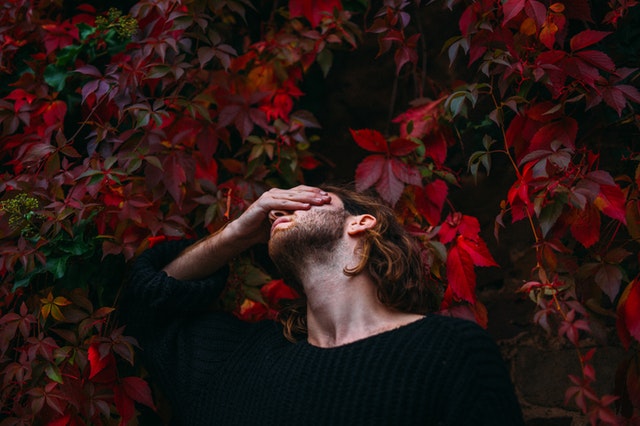
I’m the first to admit it—I’ve been a control freak in most aspects of my life.
Control involves a lot of mental planning. We ruminate over all possible outcomes. We make detailed check lists. Schedules. “Five-Year Plans.” We send follow-up text messages to make sure everyone remembered our get-togethers. We investigate a lot of “what ifs,” and even rehearse possible future conversations to ensure they go over well.
Yup. That was me. And as much as I bent over flippin’ backwards to try and create my “ideal” outcomes, they hardly ever turned out that way.
This effect is potentially most obvious in my personal relationships. That “ideal” my mind created was a harmonious bond between myself and my loved ones, where we were both free to express our deepest truths, feel completely understood, and (here’s the catch) never hurt or leave each other. Totally doable, right?
It sounds ridiculous, but there must have been some part of me that believed it was possible, otherwise I wouldn’t expend so much emotional energy making sure everyone’s feelings were in a “good place.” But, as humans, we inevitably mess up. And no amount of preemptive planning can avoid that, despite our most genuine, noble intentions.
Situations change.
People leave.
Though all evidence in life points to this truth, we put in an awful lot of effort trying to prevent it from happening. We could call this pure ignorance and stupidity, but I try not to cast off our actions with this type of judgement anymore. It’s not helpful.
So why do we try to control life anyhow?
I’ve come to understand that beneath it all is a deeper issue: lack of trust.
Think about it: If we trusted that things would work out the way they needed to, and that we (and all others involved) were capable of rising to the occasion in the moment, we wouldn’t feel the need to manipulate external conditions, massage people’s impressions of us, or mentally prepare for future events.
We could just live.
But it’s not as easy as just saying, “Trust yourself” or, “Trust the process.” In fact, if we’ve lived through some sh*t (and who hasn’t?), statements like those are, at best, out-of-touch or, at worst, completely insulting. If we’ve endured a childhood of abuse, or a completely shocking layoff, or a natural disaster wiping out our home, it’s incredibly difficult to trust that life’s got our back.
So we control. We control everything we can to keep ourselves safe.
But the fatal flaw in this dynamic is that, whether or not we trust life to support us, the unexpected still happens. And the more we’re in our heads trying to plan for a future when everything is stable and going the way we want, the less we are able to handle curveballs in the present.
This is, perhaps, the only enduring condition in life.
But what if we’ve been dealt a lifetime of adversity? If historically evidence has shown us that life is dangerous and hurtful, how the hell do we trust that we won’t get pummeled, inevitably and repeatedly, for the rest of our days?
There is only one way.
We have to prove to ourselves, that we are the trustworthy ones. That we can handle whatever comes, whenever it comes, however it shows up.
When the love of our life leaves us, we still love ourselves.
When the job falls through, we hustle and get a new one.
When we get sick, we learn how to care for ourselves and heal.
And when we fall, time after time, we get back up.
Unlike faith, trust is built on action and time-proven evidence, so for those struggling to feel this sense of self-trust, do not despair. It can be earned.
Start small: Adopt a simple, enjoyable self-care practice and build it into your week. Learn what it feels like to be there for yourself in simple ways. Cook a nutritious meal instead of eating chips for dinner. Get enough rest so your mind is fresh for work in the morning. Stand up for yourself (calmly) if someone speaks critically of you. Be honest, always, even when it’s scary.
Over time, these small acts will build in strength and we will begin to see with our own eyes that, despite the unpredictability of life, we can be quick on our feet and make the best choices for ourselves without needing control or a plan.
We become our own protectors, our own safe space.
And in this way, we are free.
Free to let go and be.
~
~
~
Author/Editor: Danielle Beutell
Image: Pexels
Copy Editor: Leah Sugerman
Social Editor: Callie Rushton








Read 1 comment and reply